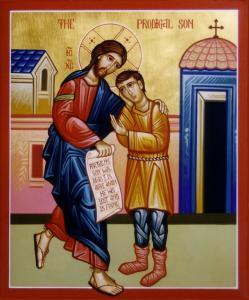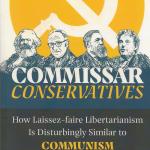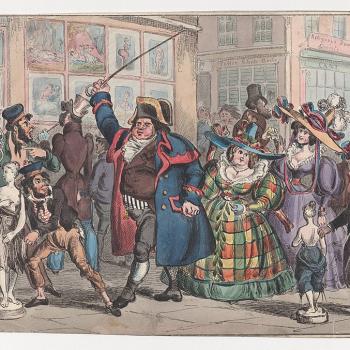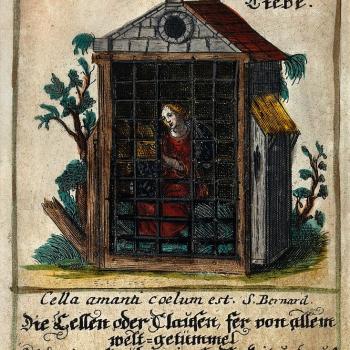
“All things are lawful for me,’ but not all things are helpful. ‘All things are lawful for me,’ but I will not be enslaved by anything” (1 Cor. 6:12 RSV). Paul’s words here are very important. They explain to us that Christian morality should have a practical, not just theoretical, side to it. Morality should not be some legalistic enterprise telling us to do things or not to do things, restricting our freedom without any substantial justification. It should be done for the promotion of the private and common good. And for this reason, we should be concerned about the way our actions needlessly hurt or hinder anyone, including ourselves. We are meant for greatness. We were given our freedom to help develop ourselves, to realize that greatness. Freedom allows us to realize that greatness in a variety of ways. We should, therefore, use our freedom wisely, making sure we make responsible actions in the world. We should not let ourselves be tricked into thinking we can and should do anything we want; such a position is naïve, as only a few people, if any, can and will act that way without getting hurt (or worse, in debt to something or someone, and so, in a way, enslaved by that debt). We are free, but that freedom is meant to help us become better, greater people. For us to be free, however, we need to be able to make mistakes and learn from them; indeed, we should be free in such a way that we do not feel forced to reach our full potential. In this way, our freedom is important, but it can also be used to sell ourselves short, and in the end, find ourselves in a desperate situation, as Jesus’ parable of the Prodigal Son also suggests:
And he said, “There was a man who had two sons; and the younger of them said to his father, `Father, give me the share of property that falls to me.’ And he divided his living between them. Not many days later, the younger son gathered all he had and took his journey into a far country, and there he squandered his property in loose living. And when he had spent everything, a great famine arose in that country, and he began to be in want” (Lk. 15:11-14 RSV).
The son was free; he had the money and resources which many in his day and age did not have. He used them to do whatever he wanted to do. So long as his wealth lasted, he followed his every whim. But he did not have unlimited resources, and eventually, what he had was used up. If he had been wise, he could have used it to build himself up so that he was well-to-do, but he didn’t. He was not farsighted in his activities. And, when his wealth ran out, a famine found its way into where he lived, making it that he had to sell himself out in order to live, making himself, as it were, a slave or servant to others:
So he went and joined himself to one of the citizens of that country, who sent him into his fields to feed swine. And he would gladly have fed on the pods that the swine ate; and no one gave him anything ( Lk. 15:15-16 RSV)
Jesus wasn’t moralizing with the story, even though we can certainly consider the moral situation of the prodigal son. He was only indicating how easy it is for us, once we get what we think we want, to sell ourselves out, not realizing until it is too late how we have abused our freedom. While not moralizing, it certainly provides a warning which is similar to what Paul warned us about. Fortunes change quickly. So many people who take pride in their riches, for example, find that it can be taken away from them, as it did during the Great Depression. What are they do to then? Jesus gives us hope by saying that mistakes, and the losses we incur through them, do not have to be the final representation of who we are and what we have done. God loves us like a loving parent. No matter how far astray we have gone, no matter how badly we have used and abused our freedom, God will welcome us back with love. This is what Jesus wants us to understand with the story of the Prodigal Son: though he had used his freedom poorly, he realized his father would at least take him in as a servant and feed him better than what he was receiving abroad. And so, the prodigal son returned to his father, only to find his father welcomed him back, not as a mere servant, but as his son:
But when he came to himself he said, `How many of my father’s hired servants have bread enough and to spare, but I perish here with hunger! I will arise and go to my father, and I will say to him, “Father, I have sinned against heaven and before you; I am no longer worthy to be called your son; treat me as one of your hired servants.”‘
And he arose and came to his father. But while he was yet at a distance, his father saw him and had compassion, and ran and embraced him and kissed him. And the son said to him, `Father, I have sinned against heaven and before you; I am no longer worthy to be called your son.’ But the father said to his servants, `Bring quickly the best robe, and put it on him; and put a ring on his hand, and shoes on his feet; and bring the fatted calf and kill it, and let us eat and make merry; for this my son was dead, and is alive again; he was lost, and is found.’ And they began to make merry (Lk. 15:17-24 RSV).
Jesus, therefore, reminded us that no matter what we have done, no matter the failures we experience in our lives, especially failures of our own making, they do not have to serve as the final statement of who and what we are. God will always provide us a way to become something greater; even if we do not realize such greatness it in our temporal existence, we can in the eschaton. We are called to be adopted children of God. Moral reflections should help direct and guide us in our decisions so we make the best decisions. When we fail to do so, when we make bad, immoral decisions, we are likely to end up hurting ourselves. Thus, Paul tells us, “Shun immorality. Every other sin which a man commits is outside the body; but the immoral man sins against his own body” (1 Cor. 6:18 RSV). While we are not to be selfish, prideful, or the like, we are to take care of ourselves because we have an inherent goodness in us which should be protected and preserved. And no matter how far astray we go, some of that goodness will remain, a goodness which God will see and use to help build us up and make something great out of us, but only if and when we let grace in.
Stay in touch! Like A Little Bit of Nothing on Facebook.
If you liked what you read, please consider sharing it with your friends and family!
N.B.: While I read comments to moderate them, I rarely respond to them. If I don’t respond to your comment directly, don’t assume I am unthankful for it. I appreciate it. But I want readers to feel free to ask questions, and hopefully, dialogue with each other. I have shared what I wanted to say, though some responses will get a brief reply by me, or, if I find it interesting and something I can engage fully, as the foundation for another post. I have had many posts inspired or improved upon thanks to my readers.













